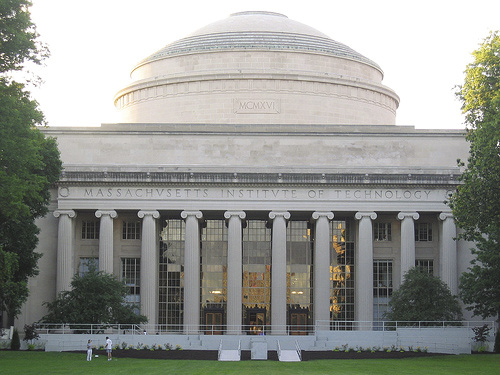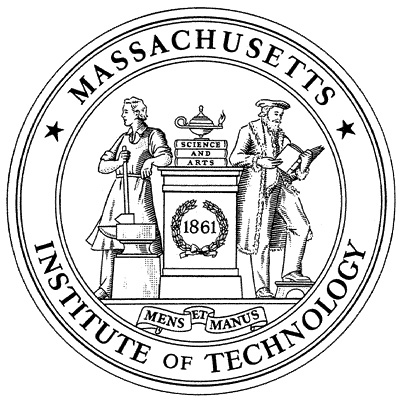MIT is a world-class educational institution whose mission is to advance knowledge and educate students in science, technology, and other areas of scholarship that will best serve the nation and the world. Two urgent global challenges that the Institute is currently addressing are energy and the environment, and the merging of engineering and the life sciences to address complex health issues.
As an institution devoted to addressing the world's great challenges, MIT recognizes that its duty to contribute to the common good is particularly important in its home community of Cambridge. Through myriad educational and community outreach programs, economic contributions, and the provision of resources and expertise, MIT aims to help its community thrive.
The Institute is deeply committed to the economic wellbeing of the city of Cambridge and the Greater Boston region. MIT-related companies in Cambridge - including spin-offs and those using technologies licensed from MIT - generate thousands of jobs and hundreds of millions of dollars in revenue. The Institute is a magnet for innovation, channeling funding, and attracting high-tech and life science businesses to Cambridge.
In terms of direct payments to the city, MIT pays taxes on its commercial property, and in doing so is the city's largest taxpayer, representing 10.9 % of the city's tax revenue stream. The institute has also provided annual voluntary payments in lieu of taxes for its academic property that is legally tax-exempt since 1928. In addition, MIT employs a Cambridge First Purchasing Policy, which resulted in the additional investment of nearly $65 million in Cambridge businesses in 2007. This program together with taxes paid, payments in lieu of taxes, and the payment of municipal fees, brought MIT's 2007 direct economic contribution to the city of Cambridge to over $99 million.
In 2007, MIT provided 7,820 full time equivalent jobs at its Cambridge campus. Cambridge residents hold over 2000 of those jobs. Also in 2007, MIT had just over 4,000 undergraduate students and nearly 6,000 graduate students. About 400 undergraduate students and 2,500 graduate students attend MIT from foreign countries. In total, MIT students come from all 50 states, the District of Columbia, four territories, and 111 foreign countries.
MIT's greatest strength is its ability to educate. The Institute's educational outreach programs share its academic resources, talented instructors, and excitement about learning with thousands of schoolchildren and teachers every year. Programs such as the Edgerton Center for hands-on science education, the MIT-Cambridge Science Expo, and the KeyPals email mentoring program allow members of the MIT community to connect with and inspire Cambridge students from a variety of backgrounds. In 2007, MIT led the effort to establish the Cambridge Science Festival, bringing science education to a new level of public engagement.
A full listing of MIT's educational outreach programs is available at http://web.mit.edu/k-12edu/list.html.
Faculty, staff, and students at MIT are involved in a broad range of volunteer activities in Cambridge. The MIT Public Service Center coordinates many of these activities, linking multitudes of Institute volunteers with local service opportunities. In addition to providing significant financial support to local nonprofit organizations, the Institute further supports community action through the MIT Community Service Fund, which dispenses approximately $100,000 annually to scores of local agencies and service projects where Institute volunteers dedicate their time, talent, and energy. MIT staff and faculty serve on the boards of dozens of Cambridge nonprofits such as the Kendall Community Group, Just A Start, the Salvation Army, and the Cambridge Office of Tourism, providing support, expertise, and access to the Institute's resources. MIT representatives also address public policy issues by serving on numerous committees and task forces, such as the Cambridge Nanomaterials Advisory Committee, the Green Building Task Force, Pedestrian Committee, and the Bicycling Committee.
Each year, the Institute hosts numerous events for Cambridge-based nonprofit organizations, providing valuable space and event support services to these community partners. We annually welcome to campus the Food For Free Party Under the Harvest Moon, the Margaret Fuller Neighborhood House Sweet Soul Supper, the Cambridge Mayor's Senior Citizens' Lunch, and the Cambridge Community Chorus performance of Handel's Messiah, among many others. For nearly 60 years, MIT has hosted the Mass. High School Science Fair.
MIT's Office of Government and Community Relations is responsible for the MIT/Cambridge relationship and is overseen by its co-directors, Sarah Gallop and Paul Parravano, who have been at the Institute for eighteen years. With their colleagues, Sarah and Paul work to promote understanding and productive engagement among Cambridge officials, neighborhood organizations, businesses, residents, and MIT.
Tags:










